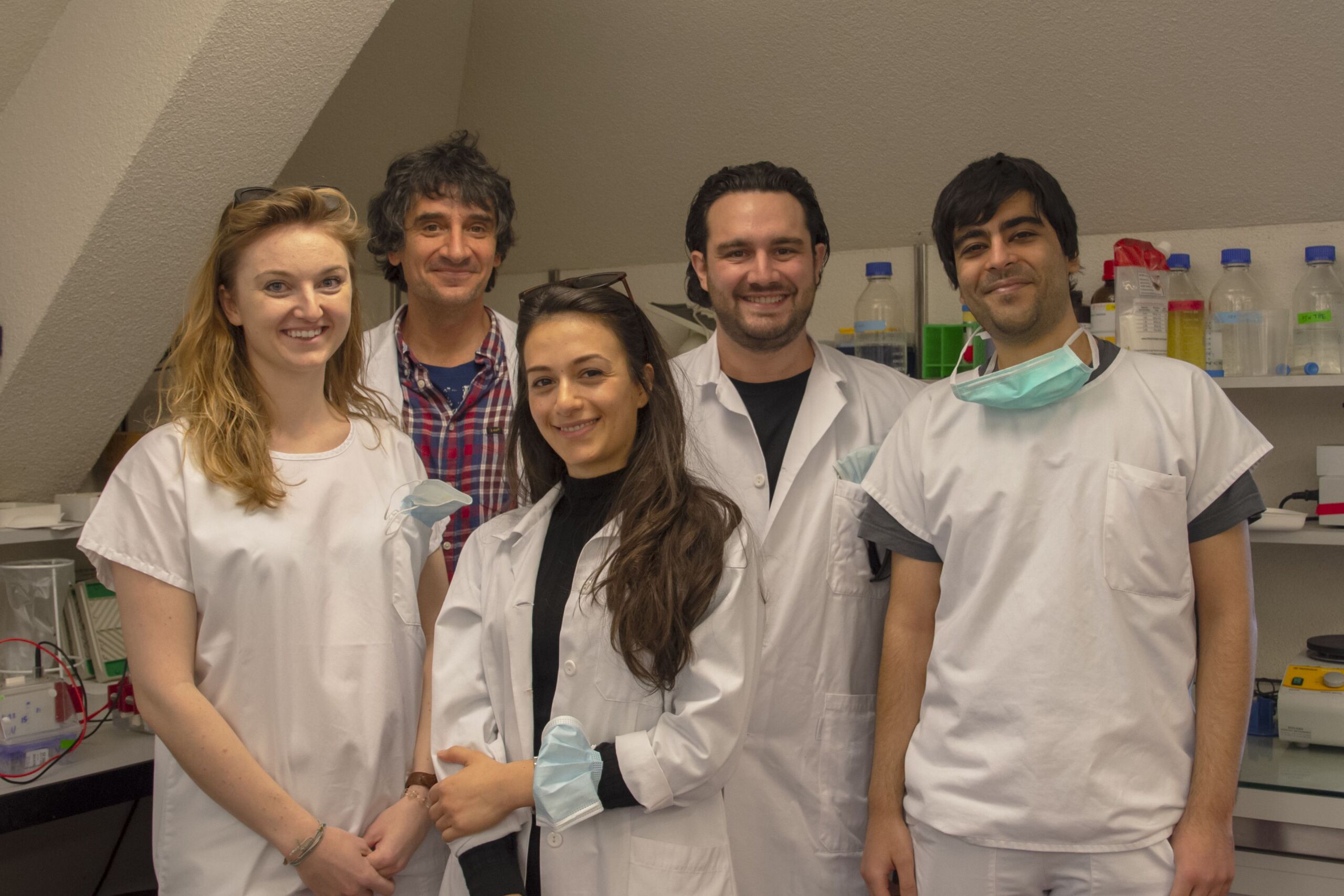Research activities in Inflammatory & infectious skin diseases of the Department of Dermatology
Research groups
Hans-Dietmar Beer
Main fields of research
Keratinocytes represent the main cell type of the epidermis. This outermost layer of the skin is directly exposed to numerous types of stress, including UVB radiation. Our research tries to elucidate the mechanisms, which are responsible for the maintenance of the integrity of the epidermis under stress conditions. A protein complex, termed NLRP1 inflammasome, plays important roles in different stress-induced processes of the epidermis, including sunburn, protection against viral infection, inflammatory skin conditions and skin cancer development. Since NLRP1-dependent mechanisms are only poorly conserved in other species, such as in mice, we are establishing novel models for skin research and protocols for the stable genetic manipulation of human primary keratinocytes and skin cancer cells by state-of-the-art methods. In addition, we are interested in understanding how anti-inflammatory drugs modulate inflammasome expression and activation.
PublicationsGroup members
Hans-Dietmar Beer, PD PhD
Gabriele Fenini, PhD
Paulina Hennig, PhD student
Michela Di Filippo, PhD student
Tugay Karakaya, PhD student
Gilles Bilfeld, Master student

Philipp Bosshard
Main fields of research
Our research activities focus on skin infections and pathogen-host-interactions. This comprises research on bacterial infections (e.g. sexually transmitted infections), fungal infections and the role of the human skin microbiome in inflammatory skin diseases such as atopic dermatitis. Our main interests are epidemiological studies, to develop and improve diagnostic tools for skin infections (e.g. PCR) and to research on the human skin microbiome (e.g. next generation sequencing).
Group members
Martin Glatz, MD
Bettina Schmid, PhD student
Ksenia Mischler, MD student
Riccardo Curatolo, MD student
Moritz Klinger, MD student
Barbara Meier-Schiesser
Main fields of research
Inflammatory skin diseases are frequent in number and often lead to a decreased quality of life in the affected patients. Although intense research in the field has already led to successful treatment of a number of these diseases, several questions still remain to be addressed. We aim to investigate the innate and adaptive immune pathways leading to i) severe adverse drug reactions of the skin, i.e. acute generalized exanthematous pustulosis ii) lichenoid skin diseases, iii) cancer-drug induced lichenoid skin reactions and iv) autoinflammatory syndromes. The goal of our research is to open up new relevant research avenues and to identify new therapeutic targets in difficult-to-treat diseases.
PublicationsGroup members
Dr. Nicola Winkelbeiner, PhD (Postdoctoral fellow)
Cadri Knoch, MD (doctoral candidate)
Jamila Hess, MD (doctoral candidate)
Patrick Poffet, MD (doctoral candidate)
Stephanie Schneider (MD master student)
Fabienne Fröhlich, MD (resident physician)
Annika Klug, research technician
PD Dr. Julia-Tatjana Maul
Main Fields of Research
Our main research activities are focused on inflammatory skin diseases, with a particular emphasis on psoriasis, a highly stigmatizing disease that affects patients both physically and mentally, leading in most cases to poor quality of life and increased risk of severe comorbidities. Despite the highly efficacious treatment options since the introduction of specific therapies targeting key cytokines involved in the pathogenesis such as TNFα, IL-17 and IL-23, many clinical and immunological questions remain. Our goal is to investigating the drug survival of biologics and conventional systemics, sex and gender differences in treatment response and access to treatment, as well as the underlying immunological mechanisms involved.
Group members
Ion Birkenmaier (PHD candidate)
Simona Steinmann MD (doctoral candidate)
Lina Raue, MD (doctoral candidate)
Fabio Veradi, MD (doctoral candidate)
Fabienne Fröhlich, MD (resident physician)
Dario Simic, MD (resident physician)
Melike AK, MD (resident physician)
Yuk Yi, Chen (MD master student)
Mathilde von Laue (MD master student)
